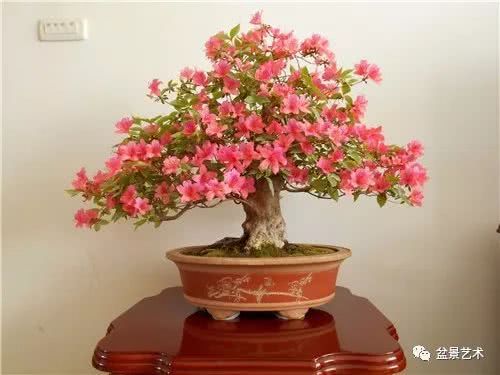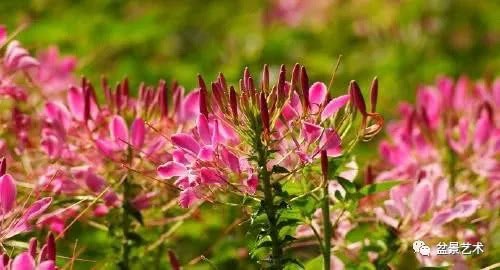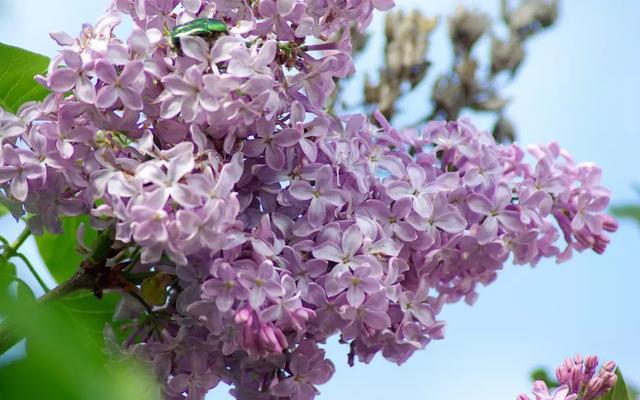Cultivation and Management of Yingshanhong Bonsai

Yingshanhong, also known as rhododendron, belongs to the genus Rhododendron of the rhododendron family. It is an evergreen, semi-evergreen or deciduous tree and shrub. It is one of the top ten famous flowers in China. When the spring returns to the earth and the warbler cries the cuckoo, it is when the azaleas are in full bloom, and they are full of flowers, full of spring and pleasing to the eye.
First, advantages:
1 most of the pile shapes are strange and strange
(2) strong germination and fast growth
(3) the flowers are colorful and colorful, which is an excellent variety of ornamental flowers.
4 varieties are common and pile heads are easy to get.
Second, habits:
1 like warm, semi-overcast, cool, moist and ventilated environment; afraid of hot sun and high temperature
(2) loose, fertile and humus-rich acidic soil; avoid alkaline and heavy clay
3 unobstructed drainage and avoid stagnant water
4withstand severe cold
3. Main points of cultivation:
1 picking piles: although the varieties of Yingshanhong are common, how long the good pile heads are in places where it is difficult to pick, we must dig carefully, protect the root system, pile mass is slightly larger, with primary soil (symbiotic bacteria). Dig before and after flowering.
2 repairing piles: slightly larger piles will be trimmed according to the needs of cultivation, and the branches will be cut once. The roots and branches should be sealed to prevent shrinkage.
3 planting: disinfect with soil first, plant in loose and plain soil, it is best to go to the ground, and then plant according to the habit after the root system is cultivated (about one year). Keep alive in the first year, root in the second year, tree in the third year, and pot in the fourth year.
4 Fertilizer and water: do not use fertilizer in the first year, use less fertilizer in the second year, use fertilizer normally in the third year, apply thin fertilizer frequently. The whole process moisturizing management.
4. Main points of production:
The main results are as follows: (1) the early modeling is dominated by Raza and supplemented by pruning.
(2) in the peak growing season, cut short according to the situation, promote lateral branches and dwarf the branches.
(3) lifting the root should not be in such a hurry, combined with changing the basin, once a year.
(4) it varies from pile to pile, highlighting the tree lattice and personality is the key to the modeling of Yingshanhong bonsai.
5. Key points for maintenance:
1 Yingshan red hard, brittle branches, thin skin, fine roots, high environmental requirements, is a relatively difficult tree species, the maintenance process must be meticulous and thoughtful.
(2) the phenomenon of Yingshanhong fake life is prominent, ranging from one year to 2-3 years, which should be carefully observed and should not be rushed for success.
(3) Yingshanhong has strong germinating power and vigorous sprouting in the lower part, which should be erased at any time to ensure the nutrition supply in the upper part.
4 No bud in the first year, less bud in the second year, proper bud in the third year, and fruit picking after anthesis.
(5) cultivation with primary soil (symbiotic bacteria) is one of the keys to survival; controlling flowering in the early stage is the second key; creating a conservation environment according to habits is the third key; not hasty success is the fourth key.
(6) the branches of Yingshan red are crisp and easy to break.
(7) the astigmatism is uniform and the maintenance position is relatively fixed.
(8) to control the age of flowering through vegetable buds.
9 the implementation of artificial light control, temperature control, to create a small season, flowering can be advanced or postponed.
- Prev

How to raise potted drunken butterfly flowers
Pot conservation techniques of drunken butterfly flowers: seedlings should be time seedlings, transplanted with 2-3 true leaves, planted in June or potted, straight-root plants, small whisker roots, difficult to recover after transplantation, usually direct seeding in spring, or when the seedlings grow to about 5 cm high.
- Next

Some of the plants that can't be put in the bedroom should be moved out.
Many flower lovers like to put some flowers in the bedroom at home, but it should be noted that none of the following flowers can be put in the bedroom. Lilacs many people know that lilacs are fragrant, but don't put lilacs in the bedroom, because.
Related
- Wuhan Hospital Iron Tree Blooming Result Was Instantly Frightened by the Gardener Master
- Which variety of camellia is the most fragrant and best? Which one do you like best?
- What is the small blue coat, the breeding methods and matters needing attention of the succulent plant
- Dormancy time and maintenance management of succulent plants during dormancy
- Minas succulent how to raise, Minas succulent plant pictures
- What are the varieties of winter succulent plants
- How to raise succulent plants in twelve rolls? let's take a look at some experience of breeding twelve rolls.
- Attention should be paid to water control for succulent plants during dormant period (winter and summer)
- Watering experience of twelve rolls of succulent plants
- Techniques for fertilizing succulent plants. An article will let you know how to fertilize succulent plants.

